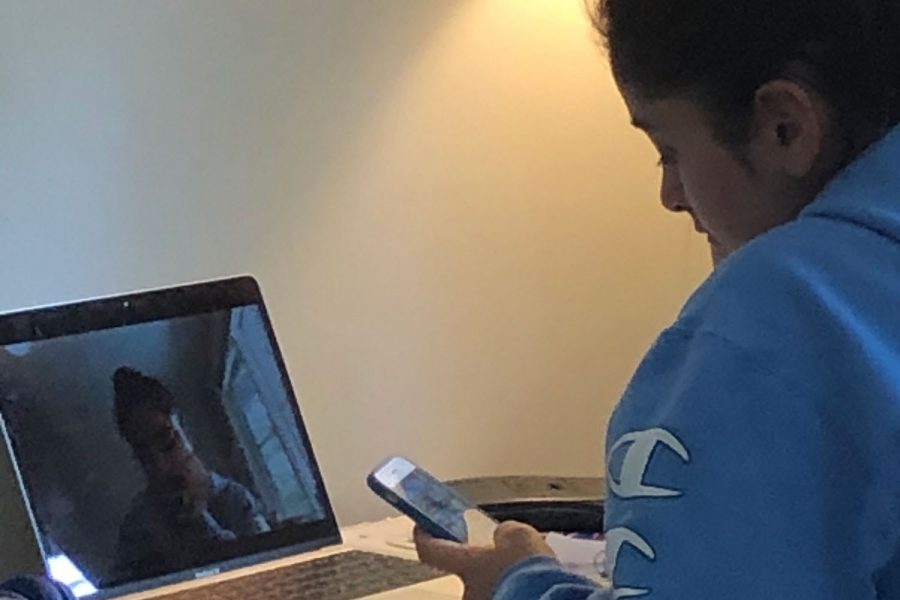UPrep Tech Policy Has Been Affected by Online School
It’s changed, but not as much as you may think
Photo: Self
A UPrep upper schooler looks at her phone.
University Prep has generally had an iPad and tech policy that many students find fairly strict, but as we shift to online learning, it has changed, but not as much as some think.
Many students have shown annoyance over the tech policy and wish for it to change, wanting it to be looser. They have been annoyed by the school’s expectation for them to delete games off their iPads.
Though there has always been a reason.
“Students were gaming during the school day, starting in the morning and some were unable to stop in class,” said Head of Middle School Susie Wu.
UPrep has prohibited middle-schoolers from using phones during class for two years now and requires students to be explicitly told to take out their iPads before being able to.
You may think that the new system of everything revolving around student’s iPads and some teachers even asking for students to incorporate phones into the curriculum (Kahoots, Quizlet, or otherwise) the tech policy would have changed, but it has overall remained the same, though it has become harder to enforce.
Teachers can’t see when a student is looking at Schoology or at Instagram, and they can’t examine their hands for a phone. One worry is that not only is technology a distraction, it also deprecates a student’s brain, it can lower attention span, and many worry if it can hurt students’ brains. Much of the scientific community found this to be untrue.
A large portion of students agree, the tech policy works, it isn’t too strict and helps kids stay engaged.
“I think that the tech policy is fine. I don’t think that it is excessive. I think that teachers haven’t really been enforcing a tech policy but it is really hard to have one right now,” said eighth-grader Wynne Johnson.
In 2019, neuroscientist Alexandra Ochoa Cohan spoke, “There’s been a lot of mostly negative hype around this issue, often referred to as screen time… Part of the issue in studying how technology influences our brain is that there are so many different forms of technology that often all get lumped into one category. So how we use technology, what specific technology we use, and what we use it for will be important variables to define in future research.”
Later she continued, “A recent study examining over 350,000 adolescents found a small but negative association with technology use and well-being, but they also found similar relationships between eating potatoes and wearing eyeglasses and well-being.”
Though much of the worry isn’t the students deteriorating their brains, it’s about students continuing to learn, focus, and preserve.
“In situations like these, we have to remain responsive. It’s really less about telling students what they can’t do and more about encouraging all of us to connect with each other while we are online,” said Ms. Wu.


